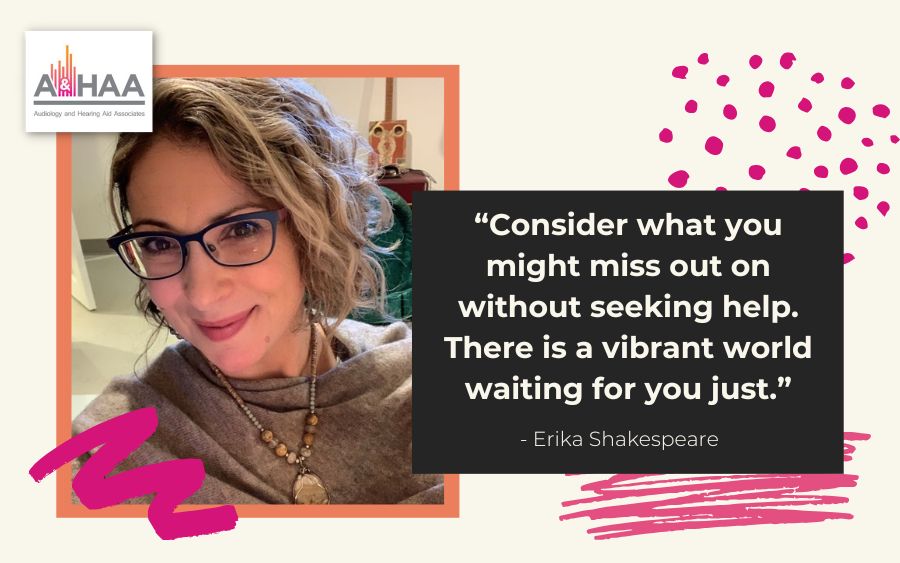Buzzing, whistling, ringing, or hissing are common descriptions my patients use to describe the symptoms most often associated with tinnitus. I see a broad range of instances of tinnitus in intermittent, constant, and fluctuant forms from mild to severe, and from low roaring to high-pitched tones.
Tinnitus presents itself in different ways and circumstances, but there are many different ways to treat it, from at-home remedies to professional hearing care and guidance.
Though tinnitus differs in causation and symptoms from one patient to another, through closer examination I can help improve your awareness and understanding of what it is as well as provide some advice on what you can do about it.
What Is Tinnitus?
The best way to describe tinnitus is to relate it to a desert mirage. With a mirage, you are visually convinced that you see an oasis in the distance when in reality there is only a vast sea of sand. With tinnitus, you are audibly convinced that you hear a sound that really isn’t there.
Causes
Prolonged, frequent exposure to loud noises (as often experienced by miners, musicians, construction workers, etc.) is the most common cause of tinnitus. However, this is not the only cause. Additional causes of tinnitus include:
- Stress
- Head trauma
- Drug abuse
- Compacted earwax
- Neurologic diseases
Tinnitus may or may not include additional symptoms such as hearing loss, vertigo, or increased pressure in the ear.
Three Types of Tinnitus
Tinnitus has a few different types: subjective, objective, and pulsatile.
Subjective tinnitus is the most common form and can only be heard by the person dealing with the tinnitus symptoms. This is usually related to issues along the auditory pathway (outer, middle, or inner ear), or to sound signal interpretation errors in the auditory nerves.
Objective tinnitus is very rare but possible; this form of tinnitus is also heard by a doctor during the individual’s examination. This form of tinnitus appears in connection with blood vessel issues, muscle contractions, or problems with the middle ear bones, and it requires more extensive treatment.
Pulsatile tinnitus is tinnitus that beats with your heartbeat. This form can be caused by structural abnormalities in your blood vessels, changes in blood flow, or tumors, which is rarer. For more information on pulsatile tinnitus, check out a blog I wrote about it here.
What Can You Do About It?
The vast majority of tinnitus cases improve over time with little more than some helpful advice from your audiologist. Tinnitus is rarely a sign of a more serious condition, requiring extensive medical treatment. For patients who find tinnitus extremely bothersome, I provide them with several options to consider, including:
Tinnitus Masking:
Masking involves the use of a fan, a radio, or environmental sounds to cover up ringing, buzzing, hissing, etc. so you can relax, especially at bedtime. It can also involve a tinnitus masker, a small electronic instrument built into a hearing aid case to generate a noise other than the one in the head of the patient.
Biofeedback Training:
These relaxation techniques, where the patient is trained to control various parts of the body and relax tense muscles, often reduce or entirely eliminate tinnitus symptoms.
Lifestyle Changes:
Patients whose tinnitus comes from extreme stress or anxiety often require better coping techniques, like biofeedback training, or time away from strenuous activity. In addition, coffee, cigarettes, and other nerve stimulants can greatly aggravate tinnitus, so I often recommend their reduction or elimination as a viable solution.
Medications:
Various types of medications can suppress tinnitus to varying degrees in some, but not all, patients, but their use does not represent a cure. Some medications, on the other hand, actually contribute to tinnitus, making it necessary to discuss tinnitus symptoms with your doctor in association with medications you are taking.
The good news is that tinnitus is not likely to cause you to lose your hearing completely. In fact, at least half of tinnitus patients find that symptoms decrease over time without treatment of any type.
Patients in La Grande who have tried the solutions I provided above and still find no relief for their symptoms or need additional coping assistance can count on my knowledgeable staff at Audiology and Hearing Aid Associates and me for high-level hearing health care.
Contact me to learn more about the various solutions for treating tinnitus available from Audiology and Hearing Aid Associates.







